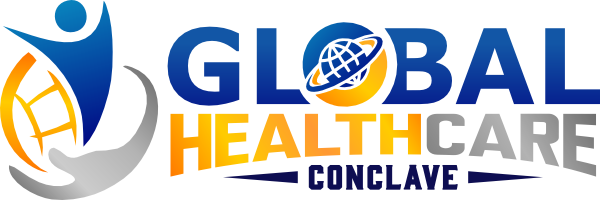
Introduction
The healthcare industry produces massive volumes of sensitive data every single day—ranging from patient medical histories and diagnostic reports to insurance claims and pharmaceutical research. Yet, with increasing cyberattacks, fraudulent claims, and fragmented health systems, managing this data securely and transparently has always been a challenge.
Enter blockchain technology, which was once popularized as the foundation of cryptocurrencies like Bitcoin but has now evolved into a powerful tool for industries far beyond finance. In healthcare, blockchain is emerging as a digital revolution, promising enhanced security, transparency, and global collaboration.
What is Blockchain in Healthcare?
At its core, blockchain is a decentralized, immutable digital ledger that records information in blocks and chains them together chronologically. Unlike traditional centralized databases that are prone to hacks and data tampering, blockchain distributes records across multiple nodes, ensuring that no single entity has complete control.
In healthcare, this technology can be applied to:
- Electronic Health Records (EHRs): Secure storage and sharing of patient medical records.
- Pharmaceutical Supply Chains: Tracking medicines to prevent counterfeit drugs.
- Clinical Research: Ensuring authenticity and transparency in trial data.
- Billing & Insurance: Reducing fraudulent claims through transparent, auditable transactions.
By leveraging blockchain, the healthcare ecosystem can become more efficient, accountable, and patient-centric.
Enhancing Patient Data Security
Data breaches in healthcare are not just costly—they can be life-threatening if sensitive patient information falls into the wrong hands. Reports suggest that healthcare is among the most targeted industries for cyberattacks, with millions of records exposed every year.
Blockchain addresses this challenge by:
- Encryption & Distributed Storage: Patient data is encrypted and spread across a decentralized network, making unauthorized access or tampering nearly impossible.
- Patient-Centric Control: Patients can own their health data, granting or revoking access to doctors, insurers, or researchers. This puts control back into the hands of the individual.
- Audit Trails: Every access request or data update is recorded, ensuring complete transparency and accountability.
For example, if a patient switches hospitals, their health records can be transferred instantly and securely through blockchain—without the fear of data leaks.
Transparency and Trust in Healthcare Systems
Trust is a cornerstone of healthcare. Unfortunately, lack of transparency often leads to mistrust between patients, providers, insurers, and regulators. Blockchain brings real-time visibility into medical transactions and ensures that records are verifiable.
Applications include:
- Clinical Trials: Blockchain prevents manipulation of trial results by maintaining immutable records of research data.
- Drug Traceability: Pharmaceutical companies can track drugs from manufacturing to delivery, eliminating counterfeit medicines.
- Insurance Claims: Patients and insurers can verify claim histories instantly, reducing disputes and fraud.
By ensuring that no record can be altered retroactively, blockchain helps build confidence among patients and providers alike.
Global Healthcare Collaboration
Healthcare is no longer confined by borders. A patient in India may need specialized treatment in Germany, or a researcher in the U.S. may collaborate with scientists in Japan. However, data-sharing barriers often slow down this global healthcare ecosystem.
Blockchain enables seamless cross-border collaboration by:
- Allowing patients to share verified medical histories with healthcare providers anywhere in the world.
- Reducing duplication of tests and medical imaging when patients travel internationally.
- Enabling researchers to securely collaborate on genetic studies, vaccine development, and AI-driven diagnostics.
Imagine a cancer patient flying abroad for treatment—their entire medical history, test results, and treatment progress can be securely shared with the new medical team within minutes using blockchain.
Future of Blockchain in Healthcare
Although blockchain adoption in healthcare is still in its early phases, governments, startups, and healthcare organizations are investing heavily in exploring its potential.
Some emerging trends include:
- Interoperability of Health Records: Breaking down silos between hospitals, clinics, and research centers.
- Smart Contracts for Healthcare: Automating insurance claims, billing, and consent forms through self-executing agreements.
- AI & Blockchain Integration: Enhancing predictive diagnostics by securely sharing anonymized datasets.
- Telemedicine Security: Protecting virtual consultations and remote patient monitoring with blockchain-backed authentication.
As adoption grows, blockchain could become a standard infrastructure for digital healthcare innovation—enabling safer, faster, and more transparent patient care.
Conclusion
Blockchain has the potential to reshape healthcare into a secure, transparent, and globally connected ecosystem. From protecting sensitive patient data to enhancing collaboration across borders, its impact will be far-reaching.
With initiatives like the Global Healthcare Conclave 2025 highlighting blockchain innovations, the technology is expected to play a central role in the future of medicine. The next decade could witness a healthcare industry where trust, efficiency, and patient empowerment are powered by blockchain.



